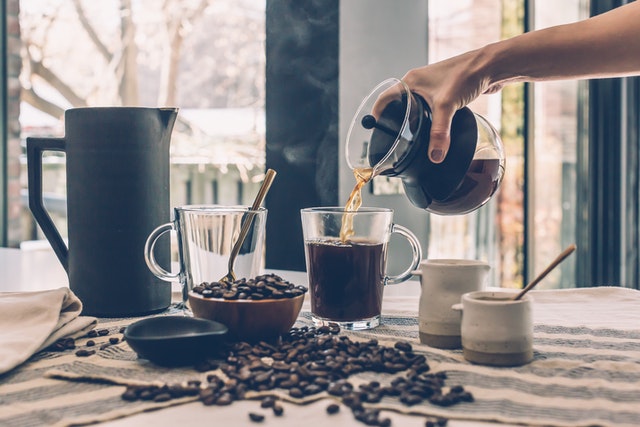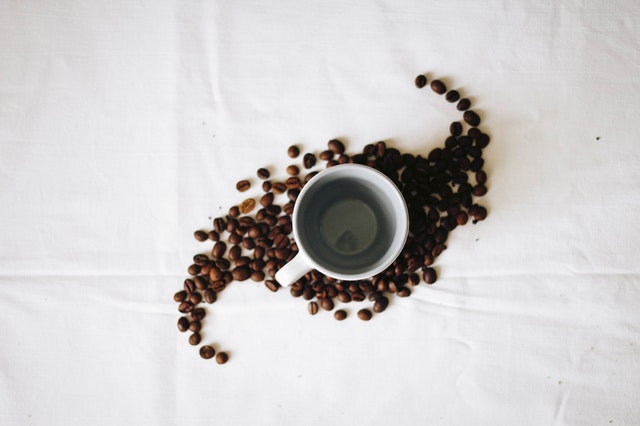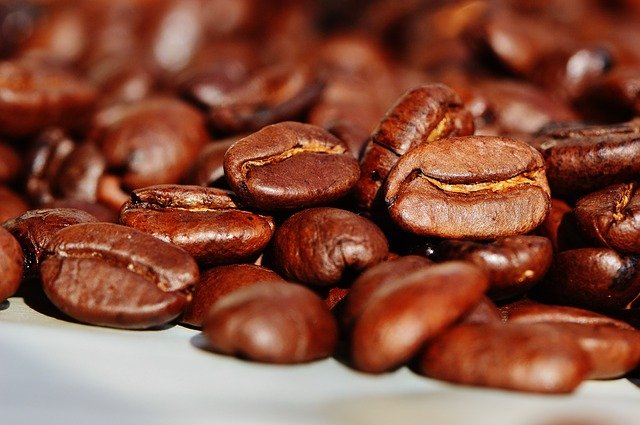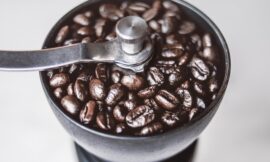The Idea of Drinking Coffee
The Physiological Effects of Coffee According to arl V. Voit, a German physiological chemist, coffee has the following effects:
As a result, coffee makes unpleasant experiences more bearable and increases our ability to overcome difficulties; as a result, for the feasting rich, coffee makes intestinal work after a meal less noticeable and drives away the deadly ennui; for the student, coffee is a means of remaining alert and fresh; for the worker, coffee makes the day’s fatigue more bearable.
Coffee and the Promotion of Intellectualism He coffee cafes were the meeting places for wits, stylish people, and smart and academic men, to whom they provided an infinite source of gossip and debate opportunities.
Because of the vigorous exchange of ideas that took place at these public clubs, it was only inevitable that they would spawn liberal and radical viewpoints, and that the established authorities would view them with suspicion. Indeed, throughout history, the drinking of coffee has been strangely connected with political protest movements, at least as far back as the eighteenth century.
Coffee has been shown to encourage clear thinking and ethical behavior everywhere it has been introduced. It has progressed in lockstep with the world’s ongoing march toward democratic rule.
Coffee and the American Revolution
It’s one of the most fascinating facts about coffee’s history to know that everywhere it has been introduced, it has sparked a revolution. It has long been known as the world’s most radical beverage since its primary role has always been to provoke thought in others. In addition, as individuals started to think for themselves, they became a threat to dictators as well as opponents of liberty of thought and action.
Intoxicated by their newfound beliefs, the people sometimes went rogue and mistook liberty for license, calling down on their heads persecutions and a variety of minor intolerances, as was the case in the early modern period.
The Drink of Choice for the Genius r. Starbucks coffee, according to Charles B. Reed, professor at Northwestern University’s medical school, is a form of chemical that may help people become more creative. His assertions seem to be supported by history.
As Dr. Reed points out, coffee’s key characteristics are so clearly defined that one critic claims to have been able to follow the sections of Voltaire’s writings that were inspired by coffee’s features throughout his whole career. When tea and coffee are consumed together, they help to maintain the balance of the creative faculties, which allows for the mental focus required to create masterpieces of art and literature.
Voltaire and Balzac were two of the most passionate coffee drinkers among the French literati, and they were not alone. When it came to coffee drinkers, Voltaire reigned supreme. He was known as “the King of Wits.” Even in his advanced years, he was believed to have drunk fifty cups of coffee every day.
Coffee served as both a meal and a beverage to the abstinent Balzac. “Balzac worked very hard,” says Frederick Lawton in his novel Balzac. His routine consisted of going to bed at six o’clock in the evening, sleeping until twelve, and then rising and writing for almost twelve hours at a time, using coffee as a stimulant during these periods of creativity.”
Balzac recounts his response to his most favored stimulant in his Treatise on Modern Stimulants in the following words:
This coffee finds its way into your gut, causing a disturbance that spreads around the room. The war begins when ideas begin to march like the I battalions of the Grand Army on the battlefield, and the conflict takes place. Remembered things approach at full speed, waving like a flag to the breeze.
Compare and contrast’s light cavalry makes an impressive deployment charge, while logic’s artillery is rushing to the front with their train and ammo, while the shafts of wit are firing off like sharpshooters. Similes are used, and the page is covered in ink; because the conflict begins and is brought to a close with torrents of black water, much as if it were a war involving powder.
A cup of “Moka,” made with whiskey and Martinique, was served to Doctor Minoret’s acquaintances, according to Balzac’s book Ursule Mirouet. The doctor insisted on personally making each cup of “Moka” in a silver coffee pot, according to Balzac. Balzac is describing a tradition that he has created for himself. In the street Mont Blanc (today called the chaussé d’Antin), he would only purchase his bourbon, while in the road des Vielles Audriettes, he would only buy his Martinique, and in the rue de l’Université, he would only buy his “Moka.” It took half a day to travel to get to where they were.
According to Sir James Mackintosh, the Scottish philosopher and politician, coffee was such a favorite stimulant that he used to argue that the abilities of a man’s intellect were typically found to be proportionate to how much of the stimulant was consumed by that individual.
Cowper, the famed Greek academics Parson and Parr, Dr. Samuel Johnson, and William Hazlitt were all big tea drinkers, whereas Burton, Dean Swift, Addison, Steele, Leigh Hunt, and a host of other writers were big coffee drinkers.

The Idea of Drinking Coffee
Lorem ipsum dolor sit amet, consectetur adipiscing elit. Ut elit tellus, luctus nec ullamcorper mattis, pulvinar dapibus leo.
In the Coffee Plant, Mother Nature has made an appearance.
It is difficult to imagine a more cleverly designed food package than the fruit of the coffee tree, which is found nowhere else in nature. Good Mother Nature seems to have stated something along the lines of: “This gift from Heaven is too valuable to be sent in any ordinary package.” I want to create a coffin for it that is befitting of its heavenly origins.
Moreover, the casket will be equipped with an inner seal that will protect it from its enemies while also preserving its goodness for mankind until the day when it will be broken open and transmuted by the fires of friendship, and made to yield up its aromatic nectar in the Great Drink of Democracy, which will be transported across the deserts and across the seas.”
As a result, she allowed a magnificent berry to sprout from the centre of the jasmine-like flower, which served as the first herald of its arrival, and which, as it ripens, changes color from green to yellow, then to reddish, to deep crimson, and finally to a royal purple.
The coffee fruit resembles a cherry in appearance, except it is somewhat elongated and has a little umbilicus at the top end of its stem. But take note of the creativity with which the package has been put together! a soft pulp with a sweetish flavor and a mucilaginous consistency is contained inside the thin, gossamer-like skin that surrounds the soft pulp.
This pulp is then wrapped around the inner seal, which is referred to as the parchment because of its rough texture, to form the outer seal. A fragile silvercolored skin, similar to fine spun silk or the thinnest of tissue papers, is wrapped around the magic bean in its final wrapping, which is made of parchment.
Moreover, this last wrapping is so tenacious, so loyal to its guardianship duty, that no amount of severe treatment will be able to completely remove it from the bean; in fact, pieces of it will remain on the bean even after it has been roasted and ground.
Indulgence in coffee (depravation)
There is no reason why somebody who enjoys coffee should refrain from partaking in its use. I’ll paraphrase Makaroff’s words: It is sufficient to be humble and nice, to eat less and think more, to live to serve, to work and play, to laugh and love—it is sufficient! If you do this, you will be able to consume coffee without endangering your everlasting soul.
A Study of the Changing Flows of Coffee S L
The Shifting Currents of Coffee It is rare that a coffee lover is aware of the lengths to which people and resources are willing to go in order to deliver the perfected beverage to his or her lips. It would be discovered that the route that leads to his breakfast cup is a convoluted and twisting one, quickly breaking off into half a dozen or more straggling branches that would go to as many widely flung places as the one that leads to his breakfast cup.
In the event that he were to ascend to a vantage position from where he could take in a bird’s-eye view of these and a hundred similar paths, he would see a complex crisscross of streamlets and rivers of coffee stretching over the tropics and north and south to every civilized country. Essentially, this would be a representation of the coffee trade all around the globe.
It would be like something out of a motion film, with the rivulets bulging bigger throughout various seasons yet seldom drying up completely at any point in time. The streamlets and rivers, for the most part, maintain the same direction and volume year after year, but there is also a subtle change in the direction and volume of these currents. Some expand in size, while others progressively shrink in size until they are no longer visible.
In one of the places from which they get their products, a tree disease may cause a decrease; in another, a storm may bring the industry to a halt in a single blow; and in a third, a competing crop may suffocate the industry’s life-blood, causing it to wither and disappear. However, when times are normal, the transition is slow; international commerce, on the other hand, is cautious and prefers to run where it can find a well-worn path.

Regarding Intolerance to Caffeine
The use of coffee, like other good things in life, may be abused in certain cases.
Indeed, people who are genetically predisposed to alkaloid sensitivity should exercise caution while consuming tea, coffee, or chocolate in large quantities. A limited percentage of persons, presumably in every high-tensioned country, are unable to consume any coffee at all due to a combination of genetic and environmental factors.
These are members of the human family who are members of the aberrant minority. Some individuals are unable to consume strawberries; nonetheless, this is not a good cause to dismiss strawberries as a food group in its whole. According to Thomas A. Edison, eating too much food might result in poisoning. Horace Fletcher was certain that overfeeding was the root cause of all of our problems. Overindulgence in meat is likely to result in health problems even for the healthiest among us. Coffee is likely less often mistreated than it is falsely blamed. It all depends on the situation. Just a smidgeon more tolerant!
Coffee Quips and bon mots are included.
Coffee literature is replete with jokes and tales, such as:
“To an elderly man, a cup of coffee is like the door post of an old house—it maintains and strengthens him,” according to an ancient saying.
According to Isid Bourdon, “the discovery of coffee has widened the field of delusion and given greater promise to the prospect of hope.”
Prince Talleyrand, the French diplomat and humorist, has provided us with the most succinct summation of the perfect cup of coffee ever devised. He said it should be “as dark as the devil, as hot as hell, as pure as an angel, and as sweet as love,” among other things.
The beverage was dubbed “the King of Perfumes” by Jean de la Roque, a French journalist, and its allure was heightened when vanilla was included to the mix.
“Coffee maintains, so to speak, the equilibrium between physiological and spiritual nutrition,” said the French author Emile Souvestre.
“If you want to develop your thinking, drink coffee,” Sydney Smith, an English clergyman and comedian, famously observed. “Coffee is the intellectual beverage.”
“This coffee intoxicates without thrilling, soothes you gently out of boring sobriety, and causes you to think and speak about all the lovely things that have ever occurred to you,” writes William Dean Howells, a native of the United States.





